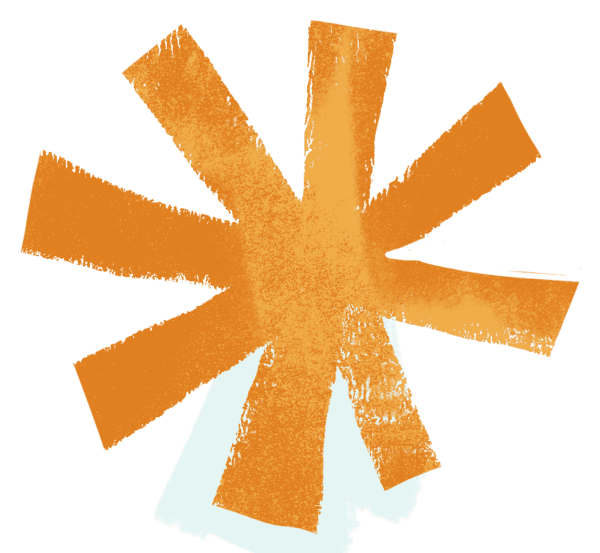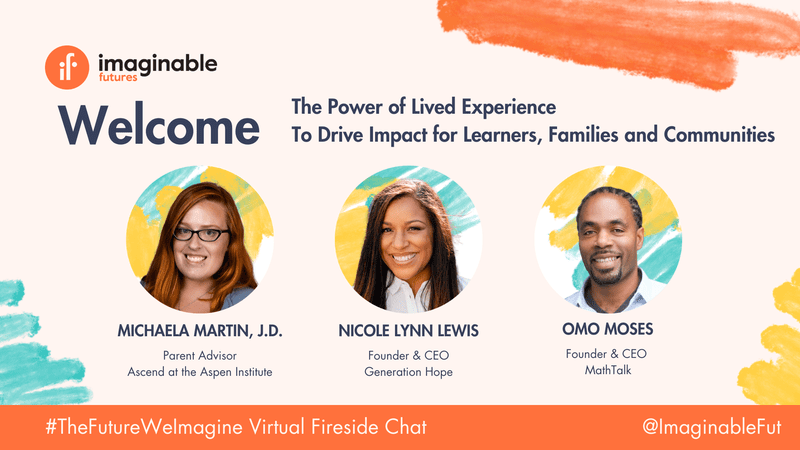Global 
The Power of Lived Experience to Drive Impact
Fireside Chat Explores Our US Work and How Lived Experiences Inspire Systems Change in Education
Global 
Fireside Chat Explores Our US Work and How Lived Experiences Inspire Systems Change in Education
Exploring the interconnections between one’s personal experiences and their work was at the heart of our second fireside chat, which took place on June 16.
During the event, “The Power of Lived Experience to Drive Impact for Learners, Families and Communities,” leaders working in the US joined IF’s Ashley Beckner to discuss how centering and leading with lived experience can drive authentic, sustainable change for learners.
The conversation included: Michaela Martin, Parent Advisor at Ascend at the Aspen Institute; Nicole Lynn Lewis, Founder & CEO of Generation Hope; and Omo Moses, Founder & CEO of MathTalk. The speakers discussed the importance of better supporting student parents and young families, reaching our littlest learners in under-resourced communities, and valuing and centering the experiences of those impacted the most.
Inspired by his parents’ activism on civil rights and access to education, Omo highlighted: “What we do is building off the work of people who came before us and will be continued by future generations.” He added that “math is an abundant resource,” and he saw his work at MathTalk as “creating resources that can be planted in communities and become rooted and a part of a community’s future.”
Nicole spoke about how the keys to implementing authentic solutions for student parents are elevating those individuals’ stories, listening, and acting upon what’s learned. She shared, “There is such a stigma and a silencing of our experiences as student parents. It was important for me to share my story.”
And Michaela shared a piece of advice for student parents and others working to balance self-care with their work: “Don’t be afraid to be vulnerable. My vulnerability is my power.”

The speakers shared actionable advice for how to value lived experience in practice:
The event is part of a virtual fireside chat series, where we are exploring different themes to realize brighter, healthier and more equitable futures for learners and their families and communities. Stay tuned for our next chat!